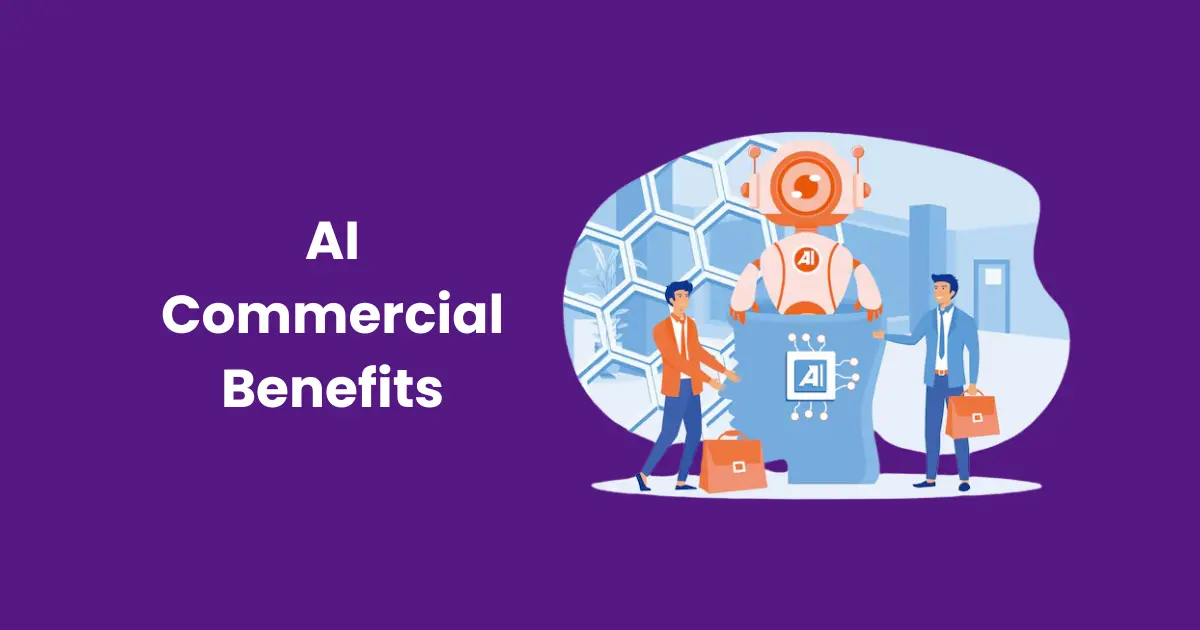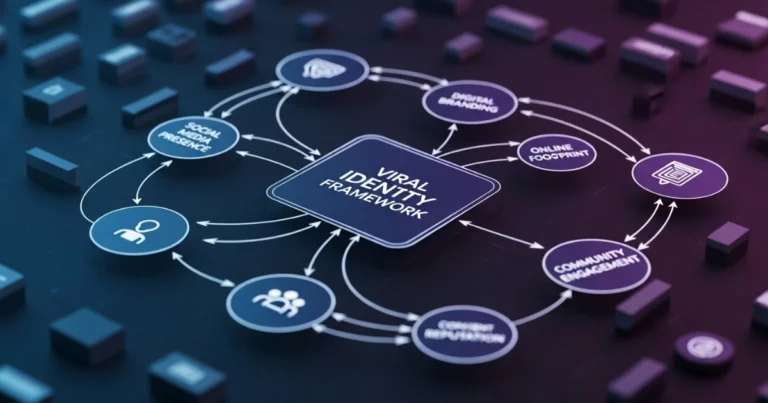AI Commercial Benefits: Revolutionizing Industries

Contents
Artificial intelligence (AI) has revolutionized how businesses operate, bringing numerous advantages that were once unimaginable. Among these, AI commercial benefits stand out as a driving force in transforming industries. By automating processes, enhancing customer interactions, and optimizing decision-making, AI empowers businesses to achieve unparalleled efficiency and growth. Whether through predictive analytics, personalized marketing, or real-time data insights, the integration of AI in commerce is reshaping the competitive landscape. As companies strive to remain ahead, understanding and utilizing these benefits has become more crucial than ever.
The Rise of Artificial Intelligence in Commerce
Artificial intelligence has emerged as a transformative force in the commercial sector, fundamentally altering how businesses operate and interact with their customers. Over the past decade, advancements in AI technologies such as machine learning, natural language processing, and computer vision have enabled businesses to adopt innovative solutions that drive efficiency and profitability.
One of the primary reasons for this rise is the increasing availability of large datasets, which fuel AI systems to deliver actionable insights. As businesses collect vast amounts of customer and operational data, AI tools analyze and interpret this information, offering valuable recommendations in real time.
Moreover, the accessibility of cloud-based AI services has significantly reduced the barriers to entry for small and medium-sized enterprises. Previously considered a luxury for large corporations, AI technologies are now affordable and scalable, allowing businesses of all sizes to harness their potential.
Another critical factor is the demand for enhanced customer experiences. Consumers today expect personalized interactions, faster service, and seamless transactions. AI meets these demands by enabling businesses to offer tailored solutions, automated customer support, and precise product recommendations.
As industries continue to adopt AI-driven tools, the impact of AI commercial benefits becomes increasingly evident. Businesses leveraging these advancements are not only staying competitive but also redefining the standards of modern commerce. The rise of AI in commerce marks a pivotal shift, paving the way for innovative business models and sustainable growth.
AI Commercial Benefits: Revolutionizing Industries
The commercial benefits of AI are reshaping industries by enabling businesses to operate smarter, faster, and more efficiently. From customer engagement to operational optimization, AI delivers transformative advantages that empower companies to thrive in today’s competitive market.

1. Enhancing Customer Experience
One of the most significant AI commercial benefits is its ability to enhance customer interactions. AI-powered tools, such as chatbots and virtual assistants, provide instant support, addressing customer queries in real-time. These systems, driven by natural language processing, ensure that responses are accurate and contextually relevant, creating a seamless user experience.
Additionally, AI enables hyper-personalization by analyzing customer preferences and behaviors. E-commerce platforms use this capability to recommend products tailored to individual needs, boosting customer satisfaction and loyalty.
2. Streamlining Operations
Operational efficiency is another key area where businesses experience significant AI commercial benefits. AI automates repetitive tasks, such as data entry and scheduling, freeing up employees to focus on strategic initiatives. In supply chain management, AI optimizes inventory levels, predicts demand, and reduces wastage, resulting in cost savings and smoother operations.
Moreover, AI’s predictive analytics capabilities help businesses anticipate issues before they arise. For example, in manufacturing, predictive maintenance powered by AI prevents equipment failures by identifying potential problems early, avoiding costly downtime.
3. Boosting Marketing and Sales Strategies
AI has revolutionized marketing and sales by offering data-driven insights and strategies. Predictive analytics enables businesses to identify trends and forecast customer behavior, allowing marketers to create targeted campaigns that yield higher conversion rates.
Furthermore, AI tools such as sentiment analysis track customer feedback and online reviews, helping businesses understand public perception. This information allows companies to refine their offerings and address customer concerns proactively.
Sales teams also benefit from AI through lead scoring and customer segmentation. By identifying high-value prospects and personalizing their outreach, businesses can increase revenue and maximize return on investment.
The wide-ranging AI commercial benefits extend across various sectors, from retail and healthcare to logistics and finance. By leveraging these capabilities, businesses can stay ahead of the curve, meet evolving customer expectations, and drive sustainable growth.
Real-World Examples of AI in Commercial Applications
The practical applications of AI in commerce demonstrate its transformative power, with companies across industries leveraging its capabilities to enhance operations and drive growth. These examples showcase how businesses are reaping AI commercial benefits to achieve remarkable results.

1. Amazon: Revolutionizing E-Commerce
Amazon is a prime example of how AI can optimize the customer journey and backend operations. Its recommendation engine, powered by AI, analyzes user behavior and purchase history to suggest products, increasing sales and customer satisfaction. Additionally, Amazon employs AI for supply chain optimization, using predictive analytics to manage inventory levels and streamline delivery logistics.
2. Netflix: Personalized Entertainment at Scale
Netflix utilizes AI to enhance user engagement by recommending content based on viewing patterns, preferences, and ratings. This personalization, powered by machine learning algorithms, has become a core feature of the platform, keeping users hooked and reducing churn rates. Moreover, Netflix employs AI to optimize streaming quality and predict demand for original content, ensuring efficient resource allocation.
3. Starbucks: AI-Driven Customer Loyalty
Starbucks uses AI to power its rewards program, creating personalized offers for customers based on their preferences and buying habits. Through its mobile app, the company provides tailored recommendations and promotions, boosting customer retention and sales. Additionally, AI helps Starbucks streamline its supply chain and manage inventory, ensuring the availability of popular items.
4. Tesla: AI in Automotive Innovation
Tesla leverages AI in its autonomous vehicles to enable advanced driver-assistance systems (ADAS). The company’s AI-powered software analyzes real-time data from sensors and cameras, making split-second decisions to enhance safety and driving efficiency. Beyond vehicles, Tesla uses AI in manufacturing to improve production processes and reduce waste.
5. Sephora: Revolutionizing Retail with AI
Sephora has embraced AI to elevate the shopping experience. The company’s Virtual Artist tool uses augmented reality (AR) and AI to help customers visualize how makeup products will look on their faces before purchasing. Additionally, AI-driven chatbots assist customers with product recommendations and queries, providing a seamless and interactive retail experience.
6. UPS: Optimizing Logistics with AI
UPS utilizes AI to streamline its logistics network, reducing delivery times and fuel consumption. The company’s ORION system (On-Road Integrated Optimization and Navigation) uses AI algorithms to plan delivery routes efficiently, saving millions of dollars annually and minimizing its environmental impact.
These real-world examples illustrate how AI commercial benefits are not theoretical but actionable and measurable. Companies that adopt AI-driven solutions continue to gain a competitive edge, showcasing the profound impact of artificial intelligence on the commercial landscape.
How AI Drives Cost Efficiency in Businesses
Cost efficiency is a critical goal for businesses across all industries, and artificial intelligence (AI) has emerged as a key enabler of achieving it. By automating processes, minimizing waste, and improving decision-making, businesses can leverage AI commercial benefits to reduce expenses and maximize profitability.

1. Automation of Repetitive Tasks
AI automates labor-intensive and repetitive tasks, saving businesses both time and money. Tasks like data entry, invoice processing, and scheduling no longer require human intervention, as AI-powered tools handle them with precision and speed. This allows businesses to reduce labor costs and reallocate resources to higher-value activities.
2. Predictive Maintenance
In industries such as manufacturing and logistics, unplanned equipment downtime can be costly. AI-driven predictive maintenance systems analyze sensor data to identify potential issues before they become critical. By addressing problems proactively, businesses can avoid expensive repairs, reduce downtime, and extend the lifespan of equipment.
3. Inventory Optimization
AI enhances inventory management by forecasting demand with greater accuracy. Machine learning algorithms analyze historical sales data, market trends, and seasonal patterns to predict inventory requirements. This reduces overstocking, minimizes carrying costs, and ensures that resources are allocated efficiently.
4. Energy Efficiency
AI helps businesses cut energy costs by optimizing energy consumption. Smart systems powered by AI analyze energy usage patterns and adjust heating, cooling, and lighting systems to reduce wastage. Companies in manufacturing and retail sectors benefit significantly from these innovations, achieving substantial savings on utility bills.
5. Fraud Detection and Risk Management
Financial losses from fraud can be substantial, but AI helps mitigate these risks. AI-powered fraud detection systems analyze transactional data in real time to identify suspicious activities. By preventing fraudulent transactions, businesses can save money and maintain customer trust.
6. Cost-Effective Marketing Strategies
AI makes marketing efforts more cost-efficient by providing data-driven insights. Predictive analytics identifies the most effective channels and campaigns, enabling businesses to optimize their marketing budgets. Furthermore, AI-driven personalization improves customer engagement, ensuring a higher return on investment (ROI).
7. Supply Chain Optimization
AI enhances supply chain efficiency by optimizing routes, predicting demand, and reducing transportation costs. For instance, logistics companies use AI-powered systems to plan delivery routes, saving fuel and reducing delays. By minimizing waste and improving delivery timelines, businesses can significantly lower operational expenses.
Overcoming Challenges in Adopting AI for Commercial Use
While the benefits of artificial intelligence (AI) are significant, businesses often face challenges when integrating AI into their operations. Addressing these obstacles effectively can help organizations fully harness AI commercial benefits and achieve long-term success.

1. High Implementation Costs
AI technologies often require substantial initial investment in infrastructure, tools, and skilled personnel. This can be a barrier, especially for small and medium-sized enterprises.
Solution: Businesses can adopt cloud-based AI solutions that offer scalable and cost-effective alternatives to on-premise systems. Collaborating with AI vendors or seeking government grants can also help reduce the financial burden.
2. Data Quality and Availability
AI systems rely on large volumes of high-quality data for accurate results. Inconsistent, incomplete, or biased data can hinder AI performance and lead to unreliable outcomes.
Solution: Companies should invest in robust data collection and management processes, ensuring that data is accurate, diverse, and up-to-date. Regular audits can help identify and rectify issues in the data pipeline.
3. Lack of Skilled Workforce
Implementing and managing AI systems require expertise in data science, machine learning, and AI tools. Many organizations struggle to find or train personnel with these skills.
Solution: Businesses can upskill their existing workforce through training programs or partner with external experts to bridge the knowledge gap. Universities and online platforms also offer specialized courses to build AI proficiency.
4. Integration with Existing Systems
Integrating AI solutions into legacy systems can be complex and time-consuming. Compatibility issues may arise, leading to disruptions in operations.
Solution: A phased approach to implementation can help minimize disruptions. Businesses should prioritize compatibility when selecting AI tools and work with IT specialists to ensure smooth integration.
5. Ethical and Privacy Concerns
AI often processes sensitive customer data, raising concerns about privacy, security, and ethical practices. Mishandling data can lead to reputational damage and legal repercussions.
Solution: Companies should adopt transparent data usage policies, comply with regulations like GDPR, and use encryption and secure storage systems to protect sensitive information. Establishing ethical AI guidelines can further enhance trust among stakeholders.
6. Resistance to Change
Employees and stakeholders may resist AI adoption due to fear of job loss or unfamiliarity with the technology. This resistance can slow down implementation efforts.
Solution: Clear communication about the goals and benefits of AI adoption is essential. Organizations should involve employees in the transition process, provide training, and emphasize how AI can enhance their roles rather than replace them.
7. Ensuring Scalability
AI solutions need to scale with business growth. Limited scalability can hinder future expansion and lead to inefficiencies.
Solution: Businesses should choose AI tools with scalability in mind, prioritizing cloud-based solutions that can grow with their needs. Regular evaluations can ensure that the chosen systems align with evolving business objectives.
The Future of AI in Commerce
As artificial intelligence (AI) continues to evolve, its influence on commerce is expected to grow exponentially. From enhancing customer experiences to driving operational efficiency, the future of AI in commerce holds transformative potential. By embracing emerging trends and innovations, businesses can unlock unparalleled artificial intelligence commercial benefits to stay competitive in an increasingly dynamic market.

1. Hyper-Personalization at Scale
AI’s ability to analyze massive amounts of data will enable businesses to provide hyper-personalized experiences like never before. Advanced algorithms will predict individual customer preferences in real time, allowing companies to offer products, services, and marketing messages tailored to each customer’s unique needs.
For instance, e-commerce platforms may integrate AI-powered virtual assistants that proactively suggest solutions based on a user’s browsing history, purchase habits, and even emotional context.
2. Autonomous Commerce
The future will see the rise of autonomous commerce, where AI will handle end-to-end processes without human intervention. From supply chain optimization to automated product delivery through drones or robots, AI will streamline operations and reduce inefficiencies.
Smart contracts powered by AI and blockchain technologies will further revolutionize transaction processes, ensuring secure and transparent dealings without intermediaries.
3. AI-Driven Market Insights
Businesses will increasingly rely on AI for real-time market insights and predictive analytics. With the ability to monitor global trends, consumer behaviors, and competitor activities, AI will empower companies to make informed decisions.
Retailers, for example, can use AI to predict market demand for products in specific regions, ensuring optimal inventory levels and reducing wastage.
4. Seamless Omnichannel Integration
The integration of AI into omnichannel strategies will allow businesses to create unified and seamless customer experiences across platforms. AI tools will track customer interactions across websites, apps, social media, and physical stores, ensuring consistent engagement regardless of the channel.
This advancement will not only improve customer satisfaction but also drive higher retention and conversion rates.
5. Sustainable and Ethical Commerce
AI will play a significant role in promoting sustainability and ethical business practices. From optimizing supply chains to reducing energy consumption, businesses will use AI to minimize their environmental footprint. AI-powered tools will also enhance transparency, helping consumers make informed choices about products and brands.
6. Enhanced Security and Fraud Prevention
The future of commerce will see advanced AI systems that can detect and prevent fraud with unmatched accuracy. Machine learning algorithms will continuously analyze patterns in transactions to identify anomalies, protecting businesses and customers from cyber threats.
7. Integration with Emerging Technologies
The combination of AI with other cutting-edge technologies, such as augmented reality (AR), virtual reality (VR), and the Internet of Things (IoT), will redefine the shopping experience. For example, AI-driven AR applications will allow customers to visualize products in their homes before making a purchase, while IoT-enabled devices will personalize recommendations in real time.
Conclusion
The integration of artificial intelligence into commerce has proven to be a game-changer, offering businesses unparalleled opportunities to innovate and thrive. From enhancing customer experiences through personalization to driving operational efficiency and cost savings, the AI commercial benefits are both transformative and extensive.
However, adopting AI is not without challenges. Businesses must overcome hurdles such as high implementation costs, data quality issues, and resistance to change to fully leverage AI’s potential. With strategic planning, scalable tools, and a commitment to ethical practices, companies can address these obstacles effectively.
Looking ahead, the future of AI in commerce is brimming with possibilities. Emerging trends such as autonomous commerce, hyper-personalization, and seamless omnichannel integration will continue to reshape industries. By staying ahead of these developments, businesses can not only meet but exceed the evolving expectations of their customers.
In an increasingly competitive landscape, embracing AI is no longer optional—it is essential. Organizations that harness the power of AI today will not only secure a stronghold in their industries but also shape the future of commerce itself.






